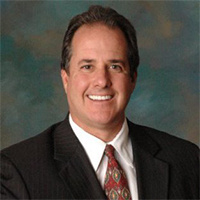Neapolis Criminal Lawyer, Ohio
Michael Prephan Jr.
✓ VERIFIEDFelony, Criminal, Motor Vehicle, Juvenile Law
Making the law work for you, not against you. In practice since 1987, Mike Prephan Jr. has the experience and knowledge to to help you through all ... (more)
Jerry P. Purcel
✓ VERIFIEDAccident & Injury, DUI-DWI, Car Accident, Bankruptcy & Debt, Divorce & Family Law
Jerry P. Purcel is a general practice attorney who has extensive experience in bankruptcy, personal injury, family law, and criminal defense cases. Wh... (more)
Martin J. McManus
✓ VERIFIEDAccident & Injury, Criminal, Traffic, Divorce & Family Law, Estate
Martin J. McManus, a third generation attorney, has long been dedicated to the practice of personal injury, wrongful death, car accident, medical malp... (more)
Stephen D. Hartman
Litigation, Criminal, Constitutional Law, Legal Malpractice
Status: In Good Standing
Christine Marie Smith
Real Estate, Federal Appellate Practice, Family Law, Criminal
Status: In Good Standing
James Edward Morgan
Litigation, Criminal, Corporate, Personal Injury
Status: In Good Standing Licensed: 48 Years
Gregory Lynn Van Gunten
Estate, Family Law, Criminal, Personal Injury
Status: In Good Standing Licensed: 49 Years
Melissa Lee Dybala
Litigation, Criminal, Elder Law, Personal Injury
Status: In Good Standing Licensed: 13 Years
Charles Macallen Boss
Litigation, Criminal, Products Liability, Personal Injury
Status: In Good Standing Licensed: 43 Years
Jeffrey Charles Zilba
International Other, DUI-DWI, Business & Trade, Medical Malpractice
Status: In Good Standing




